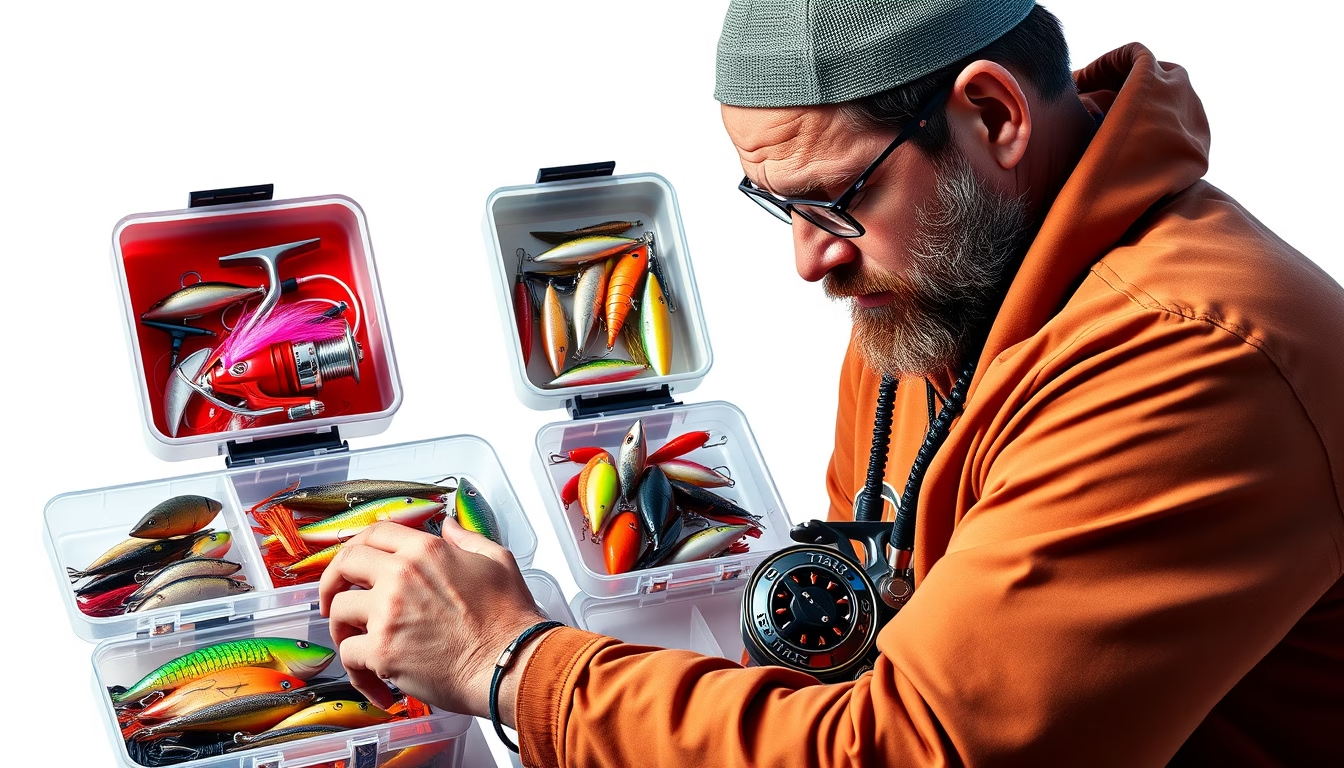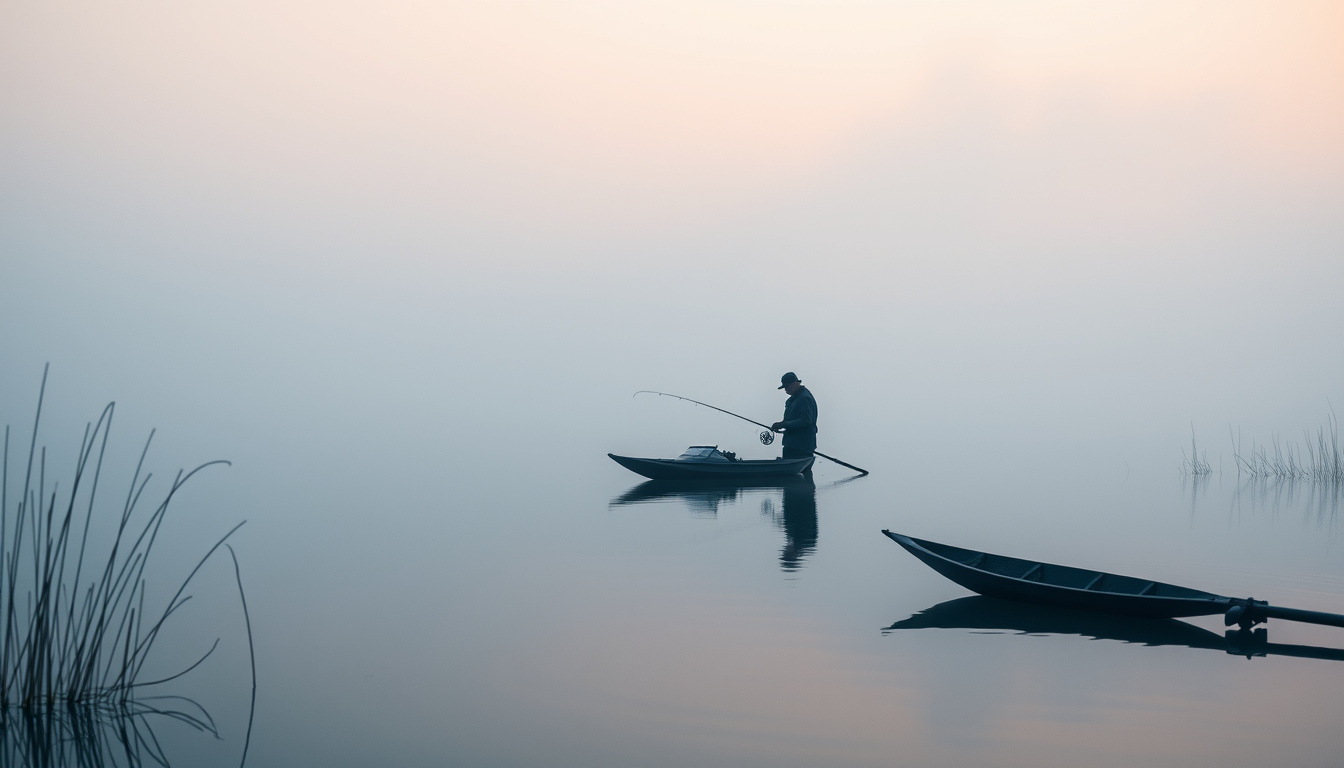
Essential Tips for Choosing the Best Fishing Tackle for Success
On May 10, 2025 by Andy FordFishing goes beyond a hobby. It is a passion that ties anglers to nature and gives endless chances for fun and rest. You may be a skilled expert or a new learner. Picking the right fishing gear matters a lot. Good gear can turn a day of hard luck into one of bright memories. This guide shows simple tips to help you choose the best fishing gear for your next trip.
Why Choosing the Right Fishing Gear Matters
Fishing gear means all the items you use when you fish. This group includes rods, reels, lines, hooks, and bait. Your gear affects your speed and wins on the water. Bad or weak gear can cause lost fish, broken tools, or even risk harm. Good gear brings better control, quick feel, and a good day on the water.
Understanding Your Fishing Spot and Fish
Before you pick gear, look at where you fish and which fish you want. Different fish and grounds call for different gear.
Key Factors to Think Over:
- Type of water: fresh, salt, or mix
- Target fish: bass, trout, salmon, catfish, etc.
- Water details: deep, fast, or full of plants
- Weather: wind, warmth, and light
Matching your gear with these points sets you up for a good day.
5 Tips for Picking the Best Fishing Gear
1. Know Your Skill Level and Aims
Your skill guides what gear suits you best:
- For new fishers: choose simple gear like spinning rods and reels.
- For the more experienced: choose gear made for certain fish or styles.
Decide if you fish for calm time, sport, or food. Pick gear that fits your aim.
2. Pick the Right Rod and Reel
The rod and reel make up your basic set. Think of these points:
- Rod length and strength: long rods cast far; light rods feel more; heavy rods manage large fish.
- Reel type: spinning reels are easy to use; baitcasting reels give sharp control for those with more skill; spincast reels work best for new fishers.
It is wise to match your reel size and rod strength with the fish you target.
3. Choose the Best Line and Hooks
Your line helps you cast far and hold strong:
- Line kind: monofilament is handy; fluorocarbon stays unseen in water; braid is tough with a small size.
- Line weight: pick one that fits the fish and the reel.
Hooks should work well with your bait and fish:
- Sizes: go small for trout, larger for catfish.
- Shapes: sharp hooks get in fast, and some hooks suit special baits.
4. Select Good Baits and Lures
Baits and lures attract your fish:
- Live bait (worms, minnows) pulls fish in the natural way.
- Fake lures (spinners, soft plastics, jigs) work in many ways and can be used again.
Pick lures that work well with the water depth, fish actions, and water clarity.
5. Invest in Long-Lasting Gear
Buying gear that lasts pays off in the long run. Choose well-known brands and check reviews before you buy. Keep your gear clean and stored well to stretch its life.

Essential Equipment Checklist for Everyone
Use this list to check your must-have fishing gear:
- A rod and reel set that fits your target fish
- A fishing line with the right rating
- A choice of hooks in various sizes
- A mix of fake lures and live bait
- A tackle box for neat storage
- Pliers, line cutters, and other small tools
- Eye gear such as polarized sunglasses and sun blockers
Frequently Asked Questions About Picking Fishing Gear
Q1: How do I pick the best fishing gear as a beginner?
A1: New fishers should start with a simple spinning rod and reel pair. Pick gear like medium hooks, light to medium weight line, and a mix of simple lures and live bait. Focus on choices that are tough, easy to use, and fair in price.
Q2: What gear is best for saltwater fishing?
A2: Saltwater fishing calls for gear that does not rust. You will need strong rods and reels, thick lines, and larger hooks to face bigger fish like redfish, snook, and sea bass. Using gear made for saltwater keeps your tools stronger and works better.
Q3: How can I check if my fishing gear is high quality?
A3: Go with known brands that keep a good name for strength. Read user hints, check material care, and buy from stores that sell fish gear. Taking care of your gear with cleaning keeps it in good shape.
External Resources for Further Learning
For more clear advice on picking the right fishing gear for certain fish and water types, see the National Marine Fisheries Service for trusted tips and hints.
Conclusion: Get Ready for a Good Catch with the Right Gear
Good fishing begins with the right gear. Know the fish you want, the water you choose, and your own skills. Buying gear that fits your needs raises your chance to catch fish and gives a better day on the water. Remember, gear is not just tools—it sets you up for the fun of fishing.
Do not wait to improve your fishing game. Buy smart, get the right gear, and go out to try your luck. Your next big catch is waiting—start with the right set today!
Archives
Calendar
| S | M | T | W | T | F | S |
|---|---|---|---|---|---|---|
| 1 | 2 | 3 | 4 | 5 | ||
| 6 | 7 | 8 | 9 | 10 | 11 | 12 |
| 13 | 14 | 15 | 16 | 17 | 18 | 19 |
| 20 | 21 | 22 | 23 | 24 | 25 | 26 |
| 27 | 28 | 29 | 30 | 31 | ||
